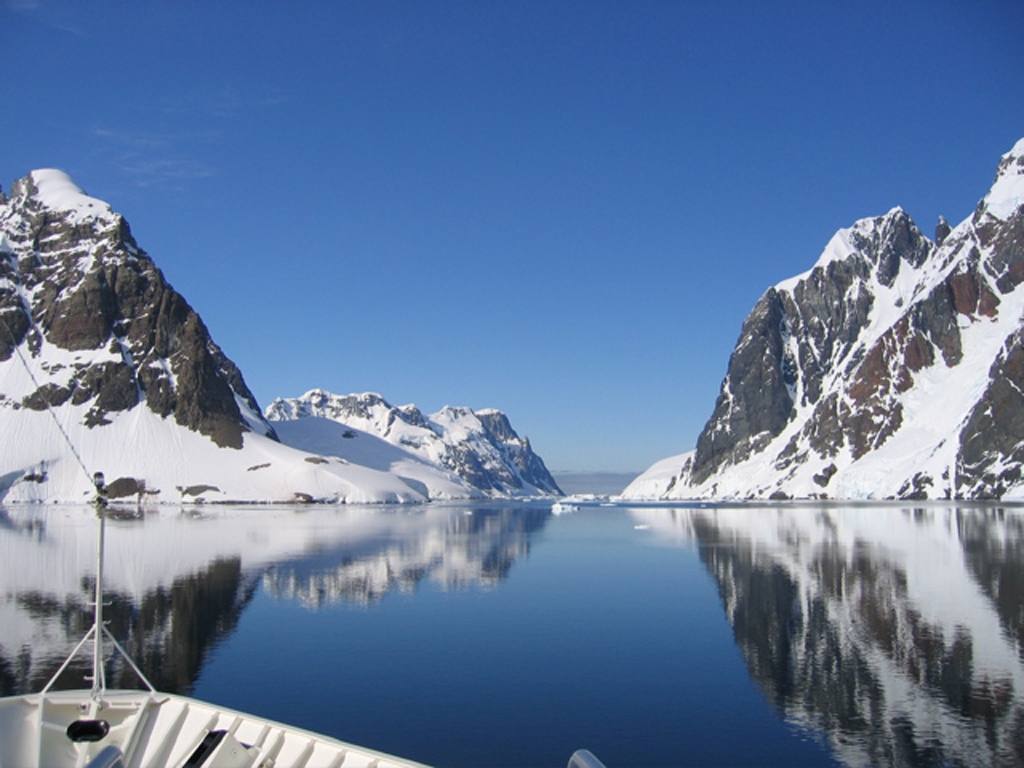

Although several countries have laid claim to various portions of Antarctica, it is governed by the 1958 Antarctic Treaty, which establishes the continent as a peaceful and cooperative international research zone There are no cities per se, just some two dozen research stations with a total population ranging from 1000-4000 depending on the time of year These are maintained for scientific purposes only, and do not provide any official support for tourism The laws of the nation operating each research station apply there
Private travel to Antarctica generally takes one of three forms: 1 commercial sea voyages with shore visits by far the most popular, 2 specially mounted land expeditions, or 3 sightseeing by air Approximately 80 companies belong to the International Association of Antarctica Tour Operators 1, a membership organization which regulates non-research travel to the region In the 2005-2006 summer season, an estimated 26,250 people visited Antarctica or the surrounding waters
Antarctica is notable for being the only continent with no significant land plant life and no native land mammals, reptiles, or amphibians There are no polar bears; they are only at the North Pole However its shoreline serves as nesting ground for many species of migratory birds and penguins, and the Southern Ocean surrounding it is home to many fish and marine mammals, including whales
Don't be fooled by all the ice: Antarctica is a desert The region's moisture is all tied up in frigid seawater and the huge sheets, shelves, and packs of ice which cover nearly all of the continent plus surrounding waters There is little snowfall here, and even less rain
For tourists, Antarctica is accessible only during the austral summer season from November to March, during which sea ice melts enough to allow access, coastal temperatures can rise up to highs of 14ºC 57ºF and there are twenty four hours of daylight During the winter the sea is impassable Temperatures can fall to -40ºC and there are twenty four hours of darkness
The above temperatures apply to the islands and coastal regions that tourists ordinarily visit Temperatures in the interior, such as the South Pole, are far harsher, with summer highs of around -15ºC 5ºF and winter lows plummeting to -80ºC -112ºF
For most people, reading about Antarctica is the only affordable means of experiencing the continent Books range from wild works of fiction to non-fiction accounts of the extraordinary early missions of adventurers looking to conquer Earth's last land frontier
The native languages of the nations operating bases are used English is the lingua franca used between different stations
Nature
Anguilla has many farms of corn, peas, tomatoes and other crops To see, buy or learn about plants and animals in Anguilla one can visit The Department of Agriculture, located in The Valley, Anguilla
Anguilla National Trust is an organization whose task is to preserve Anguilla's natural environment, historic and cultural resources and archaeology They can provide information on Anguilla's environment and conduct tours
Gardens in Anguilla are:
The Angilla Beautification Club ABC also hosts an Annual Flower and Garden Show
Hiking, Art Gallery Tours, Horseback Riding at Seaside Stables, El Rancho Del Blues and CLiffside Stables Tennis, Golf at Play-A-Round Mini-Golf Park and Temenos Golf Club, Spa and Wellness, Glass-bottom boat, Swimming, Snorkeling, Fishing, Festivals: Anguilla Summer Festival, Tranquility Jazz Festival, Moonsplash, Festival Del Mar, Annual Anguilla Yacht Regatta and Annual Lighting of the Christmas Tree
There are many places to lounge, listen to music and dance such as:
The East Caribbean dollar was fixed in 1976 at an exchange rate of 27 per US dollar US dollars are accepted everywhere but change will be in East Caribbean currency Credit cards are taken at hotels and restaurants not everywhere will accept Amex Mastercard/Visa preferred Stores will have all prices listed in East Caribbean dollars
There are many places to dine in Anguilla, with a wide variety of cuisines to chose from The prices also vary depending on the selected restaurant
Reservations: 497 3229
Antarctica has 24-hour sunshine during the southern hemisphere summer Visitors should ensure that they take steps to keep regular sleeping hours as continuous daylight disturbs the body clock There are no hotels or lodges on the continent, and research bases will not generally house guests Most visitors sleep on board their boat, although land expeditions will use tents for shelter
It is possible to obtain employment with scientific expeditions in Antarctica Induction and training need to be undertaken prior to departure for Antarctica
The following agencies are responsible for staffing bases in Antarctica: